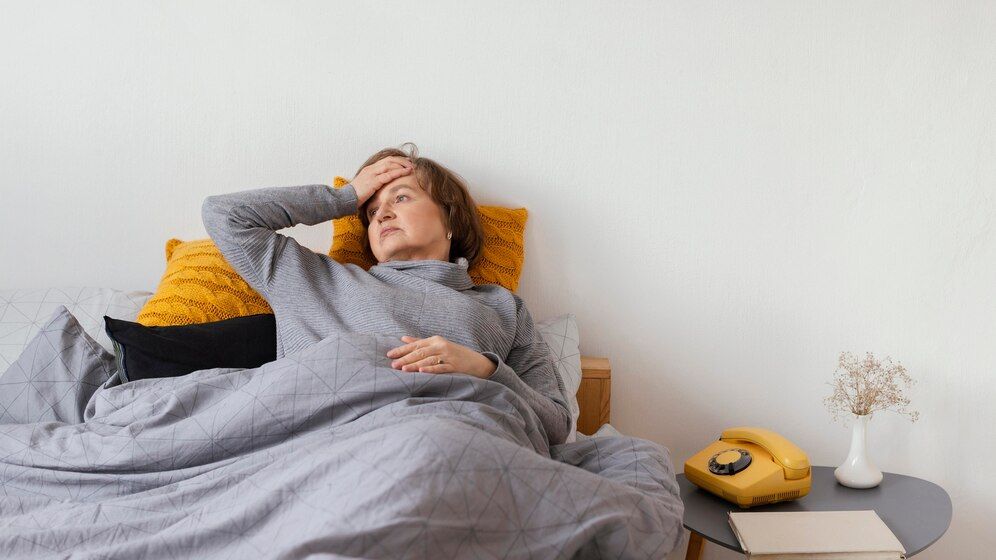Sleepless Nights No More: Simple Solutions for Insomnia

Falling asleep and staying asleep can sometimes feel like an impossible task. Insomnia has left many tossing and turning, eager for just a few hours of deep sleep. Various factors, like stress or irregular sleep schedules, often play a role in keeping you wide awake when you'd rather be peacefully dreaming.
Dr. Fox at Pennsylvania Dental Sleep Medicine knows that even issues like teeth grinding can disrupt your rest. By understanding what's causing your sleepless nights, you can begin to take simple steps to beat insomnia. Creating a restful environment and adopting healthy sleep habits can make a world of difference. Let's explore how you can achieve more peaceful nights and brighter days.
Understanding the Causes of Insomnia
Insomnia can often leave you counting sheep long into the night. It’s helpful to first understand the common causes disrupting your sleep. One primary culprit is stress. Whether it’s from school, work, or personal issues, stress can keep your mind active when you should be winding down.
Irregular sleep schedules also throw off your sleep patterns, making it tough to fall asleep at the right time. If you go to bed at different times each night, it confuses your internal clock. Poor sleeping environments don’t help either. A room that’s too bright or noisy makes it hard to relax and drift off.
Certain health conditions, like sleep apnea, significantly contribute to insomnia. Sleep apnea occurs when your breathing stops and starts repeatedly during sleep, disrupting your rest without you knowing. Dr. Fox from Pennsylvania Dental Sleep Medicine emphasizes recognizing whether sleep apnea could be affecting your slumber.
Teeth grinding is another issue linked to restless nights. It can lead to disturbed sleep cycles, leaving you tired in the morning. Dr. Fox offers insights into how addressing teeth grinding can improve sleep quality. Understanding these factors can guide you toward finding your sleep solutions.
Developing a Sleep-Friendly Environment
Creating a sleep-friendly bedroom is key to tackling insomnia. Start by optimizing your space. Dim lighting plays a big role in signaling to your brain that it’s time to rest. Using blackout curtains or eye masks can help keep your sleeping area dark.
Comfortable bedding is just as important. Investing in a good mattress and cozy pillows makes a difference in how you feel during sleep. By setting up a comfy sleep zone, you can ease into peaceful slumber more easily.
Establishing a pre-sleep routine helps signal to your body that it’s time to wind down. Consider activities like reading a book, taking a warm bath, or listening to calming music before bed. These activities help transition from the hustle and bustle of the day into a more relaxed state.
Noise can often disrupt sleep, so it’s recommended to reduce any loud sounds in your room. Using earplugs or white noise machines can mask disruptions. Keeping the room at a comfortable temperature—a bit cooler often works best—can also create an ideal setting for sleep. By making these adjustments, you’re setting the stage for more restful nights.
Incorporating Healthy Sleep Habits
Adopting healthy sleep habits can go a long way in helping you beat insomnia. One crucial aspect is maintaining a consistent sleep schedule. Try going to bed and waking up at the same time every day—even on weekends. This consistency helps regulate your body clock, making falling asleep easier.
Another significant point is reducing screen time before bed. Electronic devices like phones and tablets emit blue light, which can interfere with the production of melatonin, the hormone that controls your sleep-wake cycle. Aim to turn off screens at least an hour before bedtime.
Regular physical activity also promotes better sleep, but try to avoid strenuous exercise right before hitting the sack. A balanced diet enhances sleep quality, too. Opt for foods rich in magnesium and calcium, like leafy greens and dairy, which help relax muscles and prepare you for rest. Integrating these habits into your routine can create a positive impact on sleep quality.
Exploring Alternative Solutions to Improve Sleep
If traditional methods aren't enough, exploring alternative solutions may help. Dr. Fox offers oral appliance therapy for individuals with sleep apnea-related insomnia. This therapy involves a custom-fitted device worn during sleep to maintain an open airway, ensuring more restful sleep.
Relaxation techniques are another excellent alternative to improve sleep. Practices like deep breathing exercises and meditation help calm the mind and prepare the body for rest. Consider incorporating short meditation sessions or relaxing exercises before bed to ease your mind.
Natural sleep aids, like herbal teas or melatonin, can provide relief, but it’s essential to consult with doctors, including Dr. Fox, before trying new remedies. These options offer safe ways to enhance sleep without relying on more invasive treatments.
Conclusion
Addressing insomnia effectively involves understanding the causes, creating a supportive sleep environment, and adopting healthy habits. Exploring alternative solutions expands your toolkit in the battle against restless nights. Whether by adjusting your routine, enhancing your sleep space, or considering alternatives like oral appliance therapy, there are numerous ways to improve sleep quality.
Pennsylvania Dental Sleep Medicine is dedicated to helping you achieve the restful sleep you deserve. Dr. Fox and his team provide guidance and treatments tailored to the root causes of your sleep issues. If insomnia continues to disrupt your life, consider reaching out for personalized
dental sleep medicine solutions that suit your needs. A restful, refreshing sleep is within your reach, and it can make a significant difference in your daily life.


